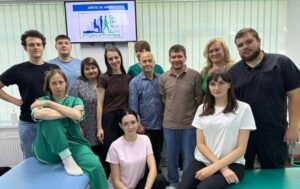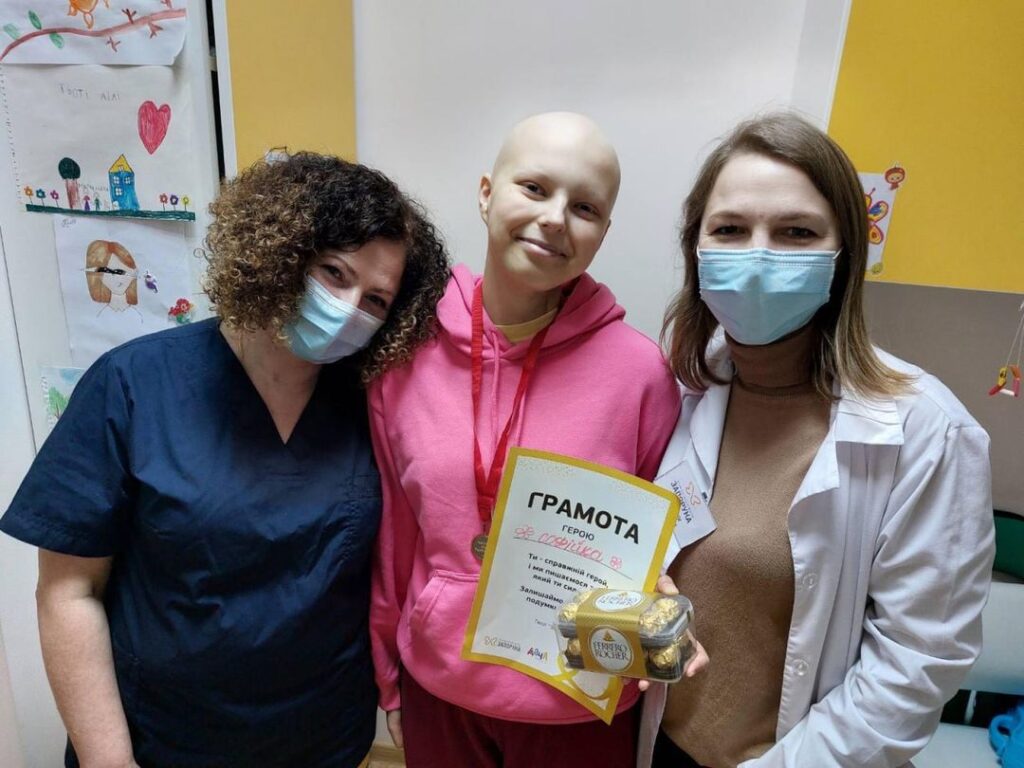Підтримка близьких та внутрішня мотивація Дві головні умови успішної реабілітації дитини
В іншому випадку пройти довготривалий, виснажливий та болісний шлях до «нормального» життя їй буде вкрай важко.
So, moms and dads, sisters and brothers, grandparents, and those who will take on the responsibility of being there throughout the process, here is the “base” you should remember.
- Support from loved ones and internal motivation are the two main conditions for a child's successful physical rehabilitation. Otherwise, it will be extremely difficult for them to go through the long, exhausting and painful path to a "normal" life.
So, moms and dads, sisters and brothers, grandparents, and those who will take on the responsibility of being there throughout the process, here is the “base” you should remember.
Set yourself up for victory. Turn off pity, turn on restrained optimism.
Be patient. A psychologist who is part of the rehabilitation team can help with this (yes, there are special and very effective tips and exercises, including "how to control yourself")
Trust the team of specialists. Stay in touch with them. Don't be shy - ask everything that interests you (on the topic, of course)
Realize that you are part of the team, so be active. However, remember that the doctor is the main one here, so you should not give advice on terms and rehabilitation exercises. Leave it to the professionals.
Find out how to properly care for the “patient”, what to feed, what comfortable clothes and shoes to prepare.
Create a pleasant atmosphere. Let the child be surrounded by pleasant things: a favorite cup, a family photo, drawings of friends.
Try not to talk about the illness, but about everyday things: interesting films, books, cartoons. Dream together, make plans for the future, remember the best moments of your life. Make jokes.
Don’t do everything for the child! Yes, you will really want to do this, but “no”! She should feel like a person who is believed to be able to cope.
Don’t criticize! This will make the child lower her wings.
Encourage and encourage: “You’re doing well. Don’t worry. Doing such exercises is not so easy. But nothing - it didn't work out today, we'll try again tomorrow. I'm sure you'll succeed."
That's it!
Read more about:
Activity
- Запасіться терпінням. Психолог, який входить до реабілітаційної команди, зможе цьому посприяти (так-так, є спеціальні і дуже ефективні поради та вправи, зокрема «як втримати себе в руках»)
- Довіряйте команді фахівців. Перебувайте з ними в контакті. Не соромтесь — запитуйте все, що вас цікавить (по темі, звісно)
- Усвідомте, що ви — частина команди, тож будьте активні. Проте пам’ятайте, що головний тут лікар, тож не слід давати поради щодо термінів та реабілітаційних вправ. Залиште це професіоналам.
- Дізнайтеся, як правильно «пацієнта» доглядати, чим годувати, який зручний одяг та взуття приготувати.
- Створіть приємну атмосферу. Хай дитину оточують приємні речі: улюблена чашка, сімейне фото, малюнки друзів.
- Намагайтеся говорити не про хворобу, а про повсякденні речі: цікаві фільми, книжки, мультики. Разом мрійте, будуйте плани на майбутнє, згадуйте найкращі моменти зі свого життя. Жартуйте.
- Не робить все за дитину! Так, вам буде дуже хотітися цього, але «ніт»! Вона повинна відчувати себе людиною, в яку вірять, що вона впорається.
- Не критикуйте! Це змусить дитину опустити крила.
- Підбадьорюйте та заохочуйте: «Ти молодець. Не переживай. Робити такі вправи не так просто. Але нічого — не вийшло сьогодні, завтра спробуємо ще раз. Впевнена/ний, що в тебе все вийде».
Тільки так!
Psychological support hotline fromЗапоруки» the number 0 800 4000 23 is available:
- free
- throughout the territory of Ukraine
- from all mobile operators
- for calls from abroad +38 050 493 03 07
Our page in Facebook

